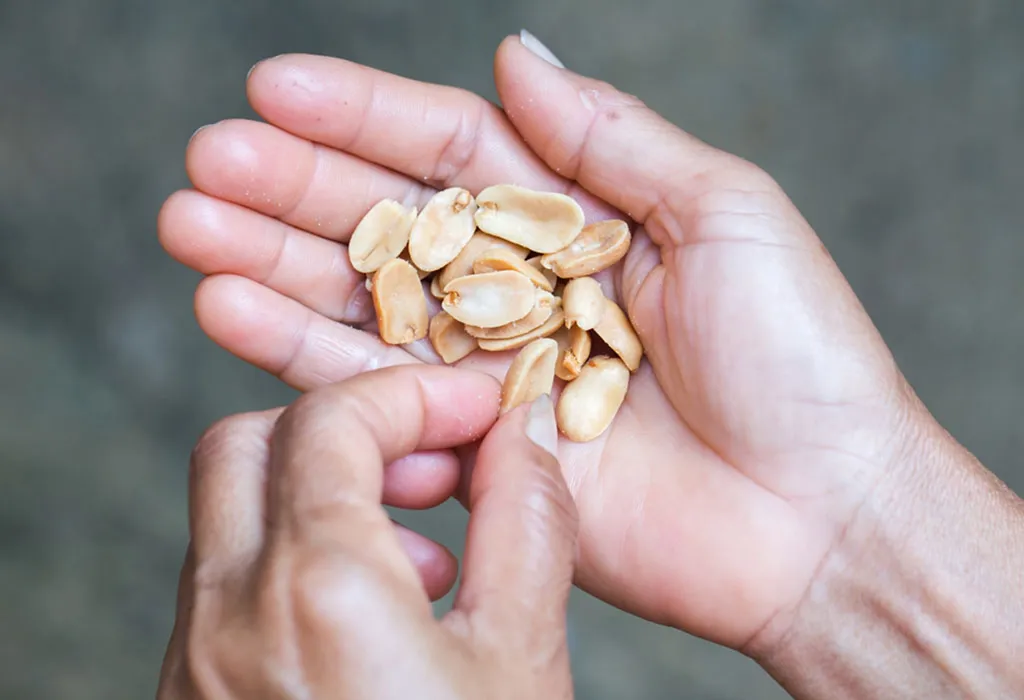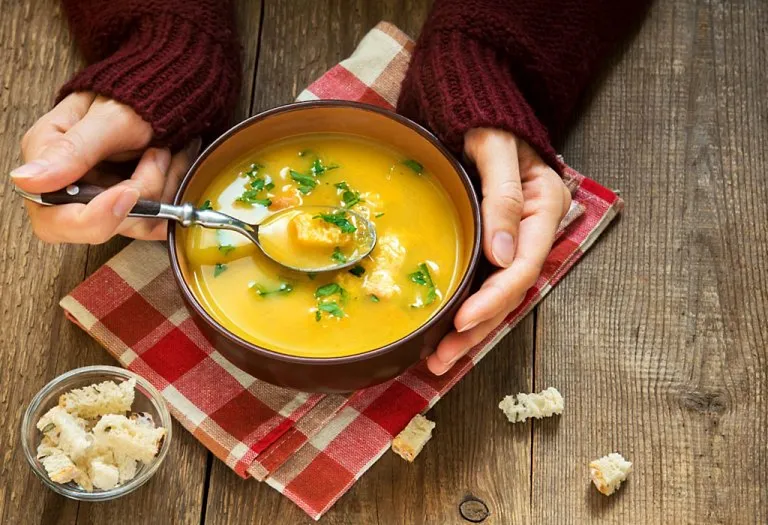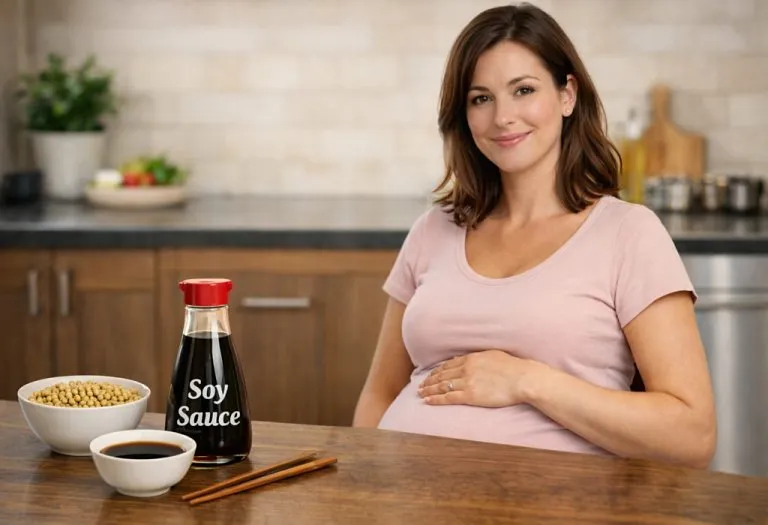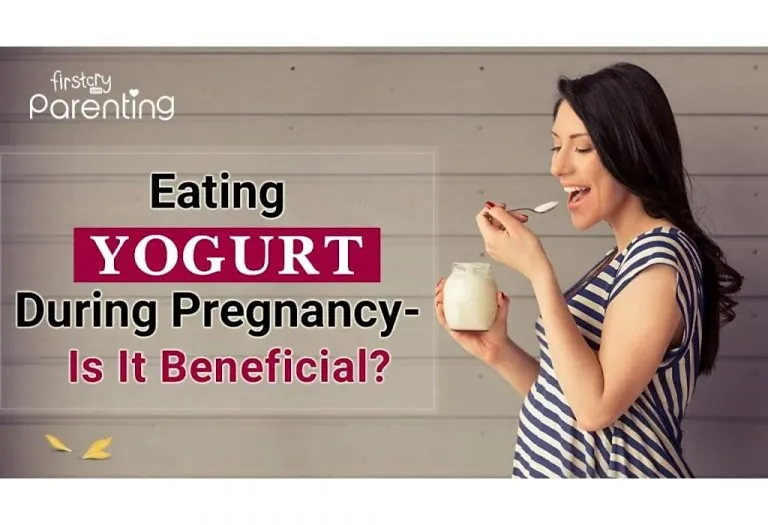Eating Peanuts During Pregnancy – Is It Safe?

Pregnancy comes with many dos and don’ts, especially with regard to diet. While the recommended diet usually includes dry fruits and nuts, many mothers worry that eating peanuts during pregnancy might increase the chances of the unborn baby developing a peanut allergy. Does this mean you have to give up eating peanuts altogether? In fact, research suggests that consuming groundnuts during pregnancy may even reduce the risk of allergies in children. However, it’s crucial to take certain precautions and consult your healthcare provider to ensure you’re on the right track. Read on to find out more about the benefits of eating peanuts in pregnancy and the steps you can take to ensure a healthy pregnancy.
Is It Safe to Eat Peanuts During Pregnancy?
The fear of allergies is the main reason why many women refrain from consuming peanuts during pregnancy. About a quarter of expectant mothers experience allergies – some allergies spring up during pregnancy, while some women have allergies running in their families. So, can a pregnant woman eat peanuts? Unless the mother has a proven allergy to peanuts, there is no established evidence that eating peanuts (or any food containing them, such as granola bars, cereals, etc.) will affect you or put the baby at risk of developing an allergy.
So, you can feel free to consume peanuts during pregnancy if you don’t have an allergy yourself.
Nutritional Profile of Peanut
Despite being classified as legumes, peanuts share many characteristics with tree nuts, including a robust nutritional profile. According to the USDA, here are the key nutrients found in 100 gms of peanuts (1).
| Nutrients | Amount |
| Calories | 567kcal |
| Carbohydrates | 16.13g |
| Water | 6.50g |
| Protein | 25.80g |
| Fat | 49.24g |
| Fiber | 8.5g |
| Sugars | 3.97g |
| Folic acid | 240mcg |
| Sodium | 1mg |
| Potassium | 332mg |
| Iron | 2.09mg |
| Calcium | 62mg |
| Zinc | 3.34mg |
| Magnesium | 184mg |
| Phosphorus | 336mg |
| Monounsaturated fatty acids | 21.41g |
| Saturated fatty acids | 7.32g |
| Polyunsaturated fatty acids | 16.5g |
What Are the Benefits of Consuming Peanuts During Pregnancy?
Contrary to popular belief, eating peanuts is good for pregnancy. The natural fat in peanuts explains their popularity. Analysis of the nutritional value of a peanut reveals that it is as healthy as other nuts in terms of valuable ingredients.
Peanuts are loaded with proteins, which walnuts do not. A balanced assortment of vitamins (B1, B4, B5, B6, C, E) and various minerals like calcium, magnesium, iron, and potassium make peanuts a nourishing snack. The calories in peanuts provide energy and strength.
Eating peanuts while pregnant is a smart choice as peanuts are packed with protein and folate, which must be a part of your pregnancy diet. Folic acid and folate prevent congenital disabilities and damage to the spine, while protein is essential for a mother and the development of her growing baby.
Peanuts also have the following benefits:
1. Antioxidant Properties
Packed with natural fats and vitamins, especially Vitamins B and E, peanuts provide the antioxidant properties needed to defend the body from flu and other common ailments (2).
2. Help Cure Skin Ailments
The oil content in peanuts helps control dermatological problems and serves as a natural cure for sores and skin irritations.
3. Bone Development
According to Mount Sinai, including manganese in the diet is essential for healthy bones (3). The manganese content in peanuts helps boost healthy bone development in the baby.
4. Aid Digestion
The fibre content in peanuts is known to relieve constipation issues. Mothers-to-be could add a small amount to their diet daily to eliminate bowel problems.
5. Cure Anaemia
During pregnancy, your body will need to produce more blood to support the baby’s growth. But if you are not getting enough iron, your body will not be able to do so effectively, leading to anaemia. To combat this risk, pregnant women must ensure they get adequate iron, and peanuts are a great source of iron (4). This makes peanuts an ideal food to treat anaemia.
Side-Effects of Peanuts in Pregnant Women
During pregnancy, consuming peanuts can sometimes have side effects. The chances of side effects are especially higher if you have an underlying health issue, which could make you intolerant to peanut consumption.
Some side effects of peanuts during pregnancy are:
1. Risk of Eating Stale Peanuts
Make sure that you do not eat stale and old peanuts. Old, stale and stored peanuts can sometimes cause food poisoning.
2. Toxic Peanuts
If peanuts are stored in hot and humid places, they can get affected by mould and become toxic.
3. Stomach Irritation
Eating peanuts could increase stomach irritation if you have gastritis (inflammation of the stomach lining).
4. Weight Gain
Peanuts contain a lot of fat that can make you gain weight. If you are overweight, it is best to avoid peanuts.
5. Cholesterol Buildup
Peanuts contain a significant amount of fats, and while they are mostly unsaturated, they do contain some saturated fats as well. Excessive consumption of saturated fats can contribute to cholesterol buildup, potentially impacting cardiovascular health.
Peanut Allergy Symptoms During Pregnancy
Some women might develop allergies during pregnancy. Here are the symptoms of a peanut allergy:
- Diarrhoea or vomiting
- A cough
- Wheezing and shortness of breath
- Itchy throat and tongue
- Itchy skin or rash
- Swollen lips and throat
- Runny or blocked nose
- Sore, red and itchy eyes
- Anaphylaxis: This is the most serious symptom that results in a drop in pulse rate. Since this symptom can be life-threatening, consult a doctor immediately if it occurs.
When to Avoid Peanuts While Pregnant?
Peanuts for pregnant women can be a nutritious snack, but there are certain circumstances when they should be avoided to ensure the health and safety of both the mother and the developing baby. Here are some situations where you should avoid peanuts while pregnant:
- If you have a known peanut allergy, it’s crucial to avoid peanuts and peanut-based products. Consuming them can lead to severe allergic reactions, which can be dangerous for both you and your baby.
- If there’s a strong family history of peanut allergies or other severe food allergies, it might be wise to avoid peanuts during pregnancy. Consult your doctor to assess the risk to your baby.
- Peanuts can be hard to digest for some people and may exacerbate stomach issues, such as gastritis or irritable bowel syndrome (IBS). If you experience digestive discomfort, consider avoiding peanuts.
- Peanuts are high in fat and calories, which can contribute to weight gain or increased cholesterol levels. If you’re already dealing with these issues, avoiding peanuts might be a sensible choice to maintain a healthy pregnancy.
Ways to Eat Peanuts During Pregnancy
Recent studies have proved that eating peanuts during pregnancy could reduce the risk of your baby developing an allergy. So, if you do not have a history of peanut allergy, go ahead and try the many ways you can eat peanuts when pregnant.
- Fry peanuts in a little oil as frying keeps those allergens away.
- Boil peanuts with the skin on in water and salt. Boiled peanuts make for a great snack if there is a long gap between lunch and dinner.
- There is no harm in consuming peanuts when the pregnant woman is craving them, but the added salt in the peanuts can lead to water retention in the body, as well as high blood pressure.
- Toss a small portion of peanuts in your salad, dips, and chutneys to give them a thick, creamy texture.
FAQs
1. Can eating peanuts during pregnancy reduce the risk of peanut allergies in children?
Recent studies suggest that eating peanuts during pregnancy might lower the risk of peanut allergies in children. This is because early exposure to allergens in the womb might help the baby’s immune system develop a tolerance.
2. Is there a specific trimester when it’s best to eat peanuts?
There isn’t a specific trimester recommended for consuming peanuts during pregnancy. Generally, it’s safe to eat peanuts throughout pregnancy unless you have a peanut allergy or other medical conditions that suggest otherwise.
3. Do peanuts have any benefits for pregnant women beyond nutrition?
Peanuts are not only nutritious, providing protein, healthy fats, and essential vitamins and minerals, but they also contain folic acid, which is crucial during pregnancy. Folic acid helps prevent neural tube defects in the developing baby. Eating peanuts might be an enjoyable way to increase your folic acid intake, but always ensure you’re getting enough from other sources too.
4. How should peanuts be stored to ensure they are safe during pregnancy?
Peanuts should be stored in a cool, dry place to avoid mold growth and spoilage. If they are exposed to heat and humidity, they can become toxic due to mold, leading to aflatoxin contamination. To ensure safe peanuts during pregnancy, use airtight containers and avoid keeping them in warm, damp places. If you notice a musty smell or visible mold, discard them immediately.
A common question asked is, ‘is peanut butter safe during pregnancy?’ The answer is yes. Its is safe to consume peanuts during pregnancy first, second and third trimesters. Any food containing a reasonable amount of peanut as an ingredient can be eaten as long as you enjoy the taste and do not have any history of a peanut allergy. If you are craving peanut butter, go ahead and occasionally spread it on that sandwich to relish it.
So, we have seen above that groundnut is good for pregnancy. A pregnant woman is encouraged to have a well-balanced diet – fruits, vegetables, rice, wheat, milk, nuts, pulses, and others. Peanuts can provide you with the essential nutrients that come from nuts. Consult a dietician to understand if you can eat peanuts, and confirm the quantity recommended for you as per your body weight and the overall condition of your pregnancy.
References/Resources:
1. Peanuts, all types, raw; Food Data Central; U.S. Department of Agriculture; https://fdc.nal.usda.gov/fdc-app.html#/food-details/172430/nutrients
2. Arya. S, Salve. A, Chauhan. S; Peanuts as functional food: a review (Journal of Food Science and Technology); National Library of Medicine; https://www.ncbi.nlm.nih.gov/pmc/articles/PMC4711439/; September 2015
3. Manganese; Mount Sinai; https://www.mountsinai.org/health-library/supplement/manganese
4. Vitamins, supplements and nutrition in pregnancy; NHS; https://www.nhs.uk/pregnancy/keeping-well/vitamins-supplements-and-nutrition/
5. Peanuts linked to same heart, longevity benefits as more pricey nuts; Harvard Health Publishing; https://www.health.harvard.edu/blog/peanuts-linked-heart-longevity-benefits-pricey-nuts-201503057777
6. López-Expósito. I, Song. Y, Järvinen. K, Srivastava. K, Li. X; Maternal peanut exposure during pregnancy and lactation reduces peanut allergy risk in offspring (Journal of Allergy and Clinical Immunology); National Library of Medicine; https://www.ncbi.nlm.nih.gov/pmc/articles/PMC2801422/; November 2010
7. Farland. L, Rifas-Shiman. S, Gillman. M; Early Pregnancy Cravings, Dietary Intake, and Development of Abnormal Glucose Tolerance (Journal of the Academy of Nutrition and Dietetics); National Library of Medicine; https://www.ncbi.nlm.nih.gov/pmc/articles/PMC4663162/; December 2015
Also Read:
Eating Cashew Nuts in Pregnancy
Consuming Almonds while Pregnant
Consuming Peanut Butter during Pregnancy
Eating Pista (Pistachios) when Pregnancy
Was This Article Helpful?
Parenting is a huge responsibility, for you as a caregiver, but also for us as a parenting content platform. We understand that and take our responsibility of creating credible content seriously. FirstCry Parenting articles are written and published only after extensive research using factually sound references to deliver quality content that is accurate, validated by experts, and completely reliable. To understand how we go about creating content that is credible, read our editorial policy here.




































